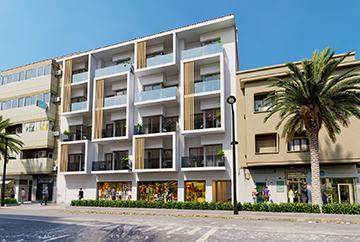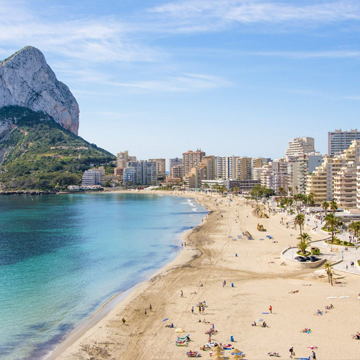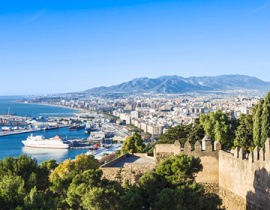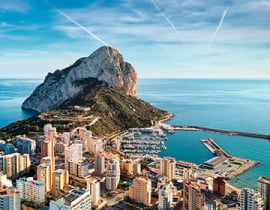Why is Spain a Top Retirement Destination?
Yes, Spain is a top retirement destination for expats from across the world. The country is renowned among retirees for its cost-effective vacation-like lifestyle all year long. Plus, the Mediterranean climate on the southern coasts of the country has a big impact on Spain’s reputation as a pioneer for pensioners.
With temperate winters and warm summers, Spain is a popular choice for retirees looking for warmer climates and more sun.
Why Spain Is a Good Place to Retire?
Spain is considered a good place to retire mainly because of its warm climate, convenient living conditions for retirees, quality lifestyle, and low expenses. The quality of life in Spain is high, with a relaxed lifestyle, excellent food, and a rich culture.
People often wonder whether is Spain a good place to retire or not, and what are the reasons that make it such a good place for retirement. Spain has a lot to offer for retirees, so here are some main reasons why Spain is a top choice to retire:
 Massive Expat Community and Welcoming Ambiance
Massive Expat Community and Welcoming Ambiance
Spain is home to 48 Million people, and 20% of its demographic consists of retirees over 65. Other than 85 million visitors per year, there are nearly 7 million foreigners living in Spain. A big part of Spain’s huge expatriate community lives in coastal cities such as Barcelona, Valencia, Málaga, or Alicante.
Since hospitality is at the top of the list of Spaniards’ charms, living among expats creates a comfortable environment for retirees. In this way, expat pensioners can easily adapt to life in Spain, connect with like-minded individuals, and maintain social connections.
Wonderful Mediterranean Climate
Mediterranean climate captivates the southern coastline of Spain. The country has several climate systems with average temperatures ranging between 14°C - 27°C. This allows enjoying all seasons without facing harsh weather conditions.
Plus, the seaside settlements of Costa del Sol, or Costa Blanca face 300 days of sunshine a year. Spain’s weather conditions give a remarkable opportunity to cut down on energy consumption and savor outdoor activities even in the winter season.
Endless Activity Opportunities
Spain is a gem for adventure and outdoor enthusiasts, as well as vacation-like lifestyle fans and peace-seekers. Spain is home to hundreds of top-notch golf resorts, beautiful nature parks, blue-flag beaches, and architectural marvels. There are endless activity options for retirees to fulfill their lifelong dreams such as golfing, hiking, traveling, dancing, and more.
Advanced Healthcare Services
Spain was ranked in the top 10 countries in the healthcare indexes over the past few years. It is also ranked in the top 5 in Europe with its cutting-edge medical facilities in world standards. Its universal healthcare system (Sistema Nacional de Salud) provides ease of access to healthcare services for expat pensioners.
Enhanced Accessibility from Anywhere in the World
Being a top travel destination benefits well for Spain’s global connections. There are 40+ commercial airports and hundreds of flights to international destinations from Spain. Spain’s global connectivity allows pensioners to travel hassle-free anywhere in the world.
Other than metropolitan Spanish city airports like Madrid or Barcelona, coastal settlement airports play a pivotal role in driving Spain's tourism industry as well. Airports like Málaga-Costa del Sol (AGP) and Alicante-Elche (ALC) serve as primary entry points to Costa del Sol and Costa Blanca.
Reasonable Real Estate Prices & Portfolio Diversity
 When it comes to buying real estate, Spanish properties take the lead on affordability, convenience, and diversity. There are all kinds of properties suitable for every expectation and budget in Spain. When compared, prices per sqm of real estate in Spain are nearly 40% lower than in the UK, and 30% lower than in the USA.
When it comes to buying real estate, Spanish properties take the lead on affordability, convenience, and diversity. There are all kinds of properties suitable for every expectation and budget in Spain. When compared, prices per sqm of real estate in Spain are nearly 40% lower than in the UK, and 30% lower than in the USA.
Perfect Combination of Mediterranean & European Culture
The Mediterranean heritage lies at the heart of Spain’s cultural identity. Spain's culture is a captivating blend of Mediterranean warmth and European sophistication. It creates a unique and vibrant way of living that appeals to retirees from across the world.
From its iconic cities filled with dazzling art and architecture to its welcoming attitude, Spain’s cultural tapestry enriched by its prime characteristics makes the country a wonderful destination to retire.
What are the Best Places to Retire in Spain?
The Costa del Sol and the Costa Blanca regions are Spain’s most popular retirement destinations. Both of these regions are renowned for their high quality of life, stunning scenery, and a variety of amenities.
While thinking about where to retire in Spain, it is always essential to consider various aspects of how life goes in that country. Let’s take a closer look at what each region has to offer:
Costa del Sol
Costa del Sol is located on the southern coast of Spain. The region is renowned for its 150 km-long coastline. The average temperature during summertime ranges between 25 - 26 °C. It is highly preferred by retirees who seek vacation-like living and a vibrant lifestyle.
 Costa del Sol’s capital city is Málaga. It is part of the Andalusian community and is home to Spain’s 4th busiest airport. It is a city with a rich history, a rich culture, and a vibrant gastronomic scene. For retirees, Málaga offers a laid-back lifestyle, beautiful beaches, and proximity to other coastal cities.
Costa del Sol’s capital city is Málaga. It is part of the Andalusian community and is home to Spain’s 4th busiest airport. It is a city with a rich history, a rich culture, and a vibrant gastronomic scene. For retirees, Málaga offers a laid-back lifestyle, beautiful beaches, and proximity to other coastal cities.
Other than Málaga, the city of Marbella is also very well-known around famous and rich with its high-end lifestyle. In Marbella, retirees can enjoy its marinas, world-class golf courses, and endless amenities at hand. Marbella is the perfect place for retirees who look for a more privileged and luxurious lifestyle.
In addition, foreign expats often choose to live in other coastal cities to adopt a more tranquil way of living. For example, Mijas and Fuengirola are both great destinations for retirement in Spain. Both of them have diverse shopping amenities, dining, and healthcare facilities. Both cities have long stretches of coastlines and charming old towns.
Costa Blanca
Costa Blanca nestles along the southeastern coast of Spain. Along with its 200 km of white sandy beaches, an average of 27 - 29 °C temperatures are observed during the summertime. Costa Blanca is a bit more contemporary settlement compared to Costa del Sol.
 The main highlight of Costa Blanca is its slow living and cozy ambiance. Plus, it is possible to find numerous direct flights to lesser-known destinations in the world from Costa Blanca’s airport in Alicante. The region is highly preferred by retirees from the United Kingdom.
The main highlight of Costa Blanca is its slow living and cozy ambiance. Plus, it is possible to find numerous direct flights to lesser-known destinations in the world from Costa Blanca’s airport in Alicante. The region is highly preferred by retirees from the United Kingdom.
Alicante in Costa Blanca is the capital city of the region. It combines the best of both worlds for retirees, city lifestyle, and tranquil Mediterranean living. The city’s lively culture and picturesque beaches make it a great place to retire.
Other cities in Costa Blanca with high demand from foreign retirees are Altea and Orihuela. These towns are a few of the best places to retire in Spain by the sea. Both cities are located by the coastline, offering an active Mediterranean lifestyle with countless activity options. These settlements are the best places to spend your days outdoors, such as for a short walk on the beach during sunset and golfing at the most prestigious resorts of Costa Blanca.
With mild winters and warm summers, the Costa del Sol and Costa Blanca provide retirees with a Mediterranean climate that allows them to enjoy outdoor activities and relaxation all year round. Both regions also have a vibrant expat community, which allows retirees to meet and socialize with people from all over the world.
Compared Analysis of Cost of Living in Spain
Spain allows foreign pensioners to live a high-class lifestyle without breaking the bank. The cost of living in Spain is relatively low compared to many European countries and USA. According to the Numbeo statistics, living in Spain is 46.1% cheaper than in the USA, and 33.1% cheaper than in the UK.
Here are some average costs of spending items compared to other major cities in the world:
| Expenses / Countries | Spain | United Kingdom | Germany | USA |
| Average Meal | €12.50 | €17.82 | €15.00 | €18.44 |
| Coffee | €1.91 | €3.81 | €3.38 | €4.74 |
| Gasoline (1 liter) | €1.60 | €1.76 | €1.76 | €1.09 |
| One-Way Bus Ticket | €1.50 | €2.73 | €3.00 | €2.30 |
| Taxi (1 km - Normal Tariff) | €1.21 | €1.57 | €2.10 | €1.70 |
| Monthly Utilities | €130 | €294.20 | €296.10 | €192 |
| Property Price (Per Sqm) | €3,636.19 | €5,945.42 | €5,611.54 | €4,166.00 |
Note: The data listed above is updated in July 2024.
Healthcare for Retirees in Spain
EU citizens and foreign retirees with a valid residence permit can benefit from the National Health Service (NHS) in Spain. They can register with the NHS from the nearest medical facility or main healthcare provider.
 Public Healthcare in Spain
Public Healthcare in Spain
The public healthcare system in Spain is primarily funded by taxes and managed by the state, with contributions from both national and local governments. The universal healthcare services in Spain cater to all residents. Most services are free for retired expats at the point of use. However, some comprehensive treatments or medications may require a small fee.
Private Healthcare in Spain
Even though foreign retirees can benefit from universal healthcare in Spain, some might choose to purchase private health insurance. Private insurance can be used as an add-on to their existing pension coverage to widen access to private healthcare institutions. Benefits may include exclusive private rooms, more personalized care, and a broader range of elective surgeries and therapies.
For more detailed information, read our blog about the Healthcare System in Spain.
Do Retired Expats Pay Taxes in Spain?
Yes, mainly because retired expats are considered tax residents in Spain if they spend more than 183 days in a single calendar year. Taxation regulation applies if Spain is the primary residence of a foreigner. To follow their tax liabilities, pensioners should register the local town hall (Empadronamiento) to obtain an NIE number (Número de Identificación de Extranjero).
 For pensioners, the taxation of pensions varies. Private pensions are generally taxed as income. Public pensions are typically taxed in the country that the income is generated from. This depends on the Double Taxation Agreements (DTA) between countries.
For pensioners, the taxation of pensions varies. Private pensions are generally taxed as income. Public pensions are typically taxed in the country that the income is generated from. This depends on the Double Taxation Agreements (DTA) between countries.
Let’s say a retiree is from the United Kingdom and is considering living in Spain. According to the DTA between the UK and Spain, the private pension of the pensioner will be taxed in Spain. But the public pension will be taxed in the UK.
The income tax rate depends on the income. As of 2024, the national tax rates start at 19% for income up to €12,450. It can reach up to 45% for income over €60,000.
Spain also has a wealth tax on owned assets. While residents pay for all their assets worldwide, non-residents only make payments for their assets in Spain. The tax rates may vary from one autonomous community to another.
Spanish government offers various deductions and allowances for taxes. This can reduce the foreigners’ tax liabilities. A tax advisor familiar with Spanish tax laws can navigate the complexities and optimize tax liabilities.
Residency and Visa Options in Spain for Retirees
There are several types of residency permits available in Spain for retirees. The Non-Lucrative Visa is specially tailored for foreign expats who do not plan to work in Spain. It is one of the highly preferred options for pensioners.
Here are the different types of visas available for retirees moving to Spain:
1. Non-Lucrative Residence Visa: This visa allows retirees to live in Spain but does give permission to work in Spain. It gives visa holders the ability to travel in Europe without needing a Schengen visa. There is a minimum income to retire in Spain with a Non-Lucrative Visa and the amount is calculated based on IPREM. Please take a look at our Non-Lucrative Visa in Spain blog for more information.
2. EU/EEA/Swiss Citizen Residency: Available to EU citizens, citizens of the European Economic Area (EEA), and Switzerland.
3. Long-Term Resident EU Permit: This visa is granted after five years of legal residence in Spain.
4. Family Reunification Visa: It permits retirees to travel to Spain with family members.
5. Golden Visa: It requires a substantial investment to get a Golden Visa in Spain.
Every visa category has its own set of eligibility criteria, application processes, and terms. For retirees looking to relocate to Spain, it’s important to review the criteria if it is suitable or not. Please seek expert advice on the Spain retirement visa options for your circumstances.
Discover Spanish Charm Yourself!
Retiring in Spanish retirement communities offers a blend of cultural immersion, a warm climate, and affordable living. Overall, Spain is a popular choice for retirees seeking a vibrant yet tranquil environment to spend their lives in.
TEKCE's professionals are at your disposal for every step of the process of acquiring the property of your dreams to enjoy your retirement life under the Spanish sunshine. Browse our website, or contact us today to get more information.
FAQ
What is the best city to live in for retirees in Spain?Retirees in Spain most commonly prefer coastal cities in southern and eastern Spain, thanks to the mild climate, relaxed lifestyle, and strong healthcare infrastructure. One of the top regions is Costa del Sol, where cities such as Málaga, Marbella, Mijas, and Fuengirola stand out. These locations offer year-round sunshine, seaside living, high-quality medical services, and a safe, peaceful environment ideal for retirement.
Another popular region is Costa Blanca. Coastal towns like Alicante, Altea, and Torrevieja are especially attractive to retirees seeking a quieter Mediterranean lifestyle, more affordable living costs, and well-established international communities.
Overall, Spain’s southern and Mediterranean coastal areas are considered the best places for retirees due to their favorable climate, accessible healthcare, social life, and comfortable pace of living.







